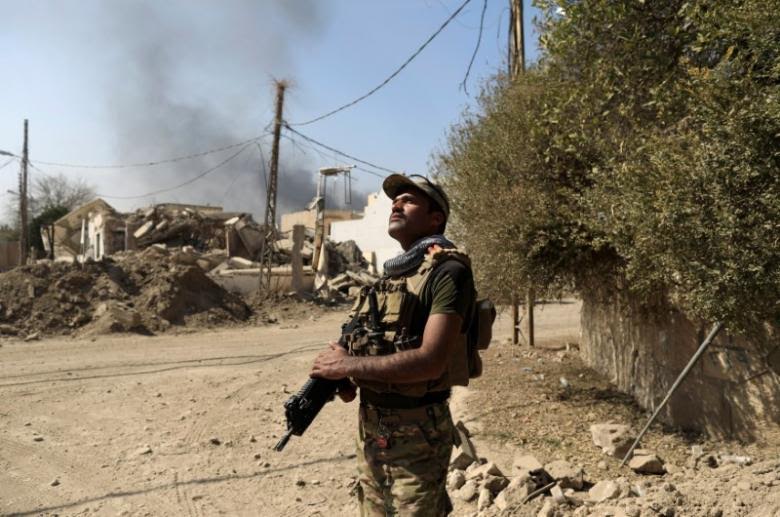London, Kuwait – The State Department announced on Thursday that the US would host on March 22 a 68-nation international ministerial meeting with an aim “to accelerate international efforts to defeat ISIS.”
US Secretary of State Rex Tillerson will host the March 22-23 meeting of foreign ministers.
The meeting is scheduled at a time when coalition forces continue their battle against ISIS in the northern Iraqi city of Mosul and tighten the noose around the city of Raqqa, stronghold of the terrorist organization in Syria.
The Washington Post said it would be the first meeting of the full coalition since December 2014.
In a related development, US officials told Reuters on Thursday that US President Donald Trump’s administration is weighing a deployment of up to 1,000 American soldiers to Kuwait to serve as a reserve force in the fight against ISIS as US-backed fighters accelerate the offensive in Syria and Iraq.
Pentagon spokesman Eric Pahon told Asharq Al-Awsat in a telephone interview: “No decision has yet been taken to send soldiers to Kuwait, but we are certainly discussing all options.”
Pahon added: “We still believe that the best way to defeat ISIS goes through our work with allies on the ground.”
Asked whether discussions related to sending forces to Kuwait was part of the Pentagon plan sent to Trump on Feb. 27, Pahon said: “I would not like to uncover what the plan includes. Nevertheless, the deployment of these troops to Kuwait might form another means to speed up the campaign against ISIS.”
Reuters had reported that US proponents of the option said it would provide American commanders on the ground greater flexibility to quickly respond to unforeseen opportunities and challenges on the battlefield.
It would also represent a step away from standard practices under President Barack Obama’s administration by leaving the ultimate decision on whether to deploy some of those Kuwait-based reserve forces in Syria or Iraq to local commanders.
